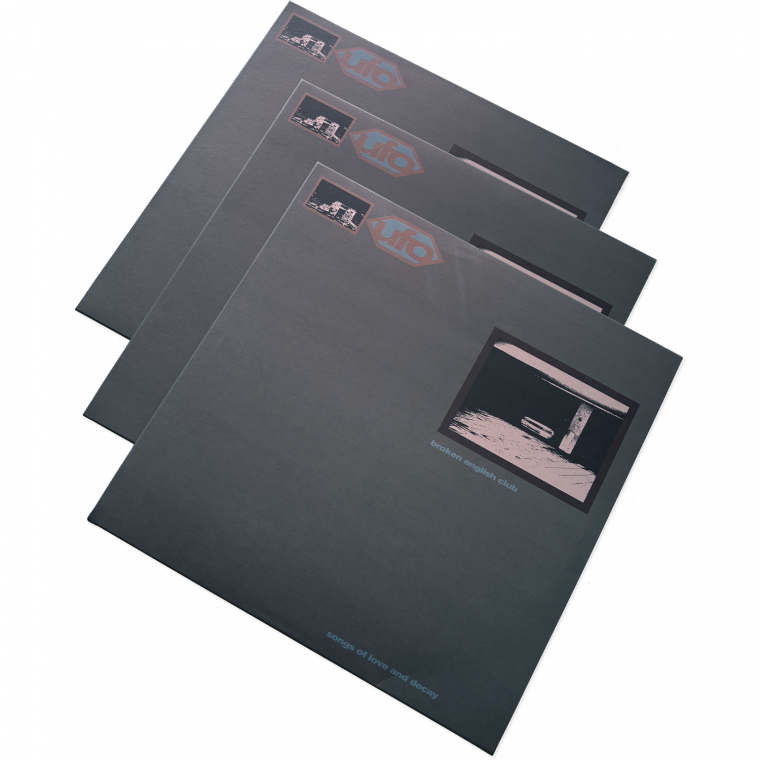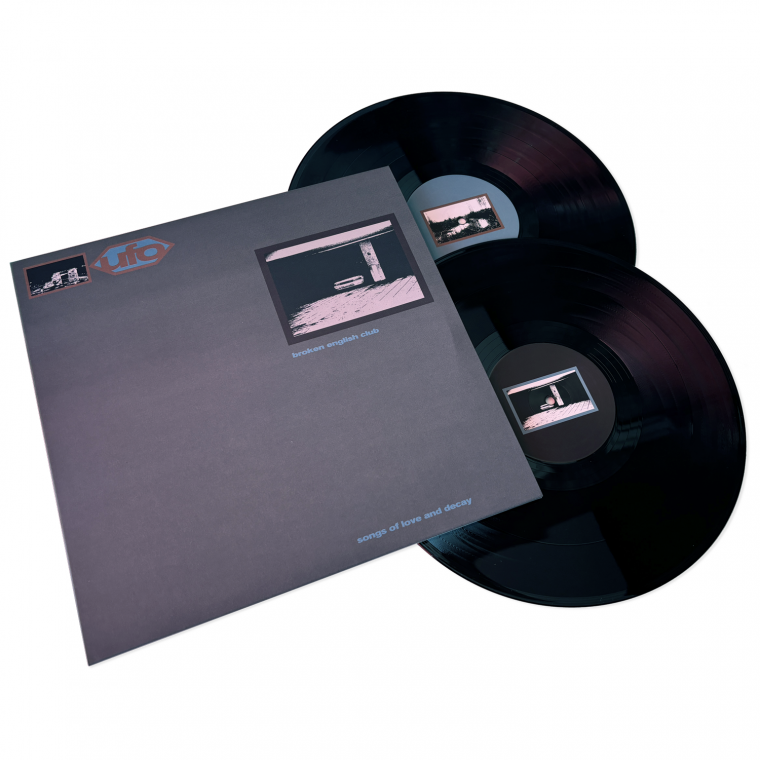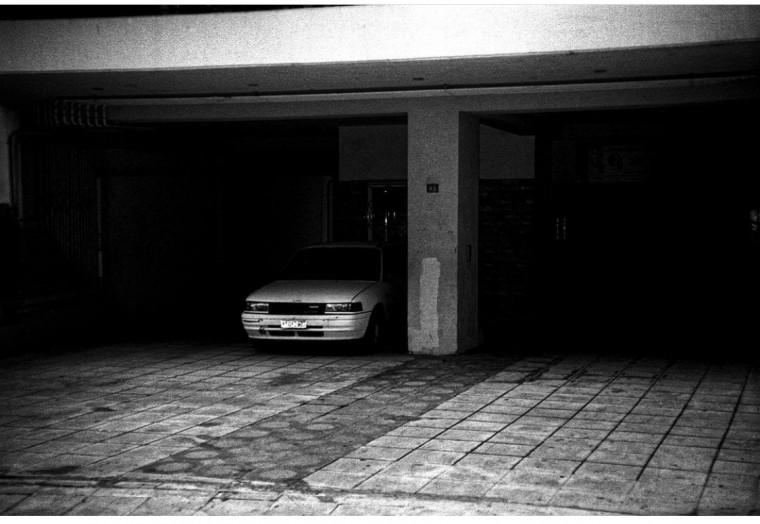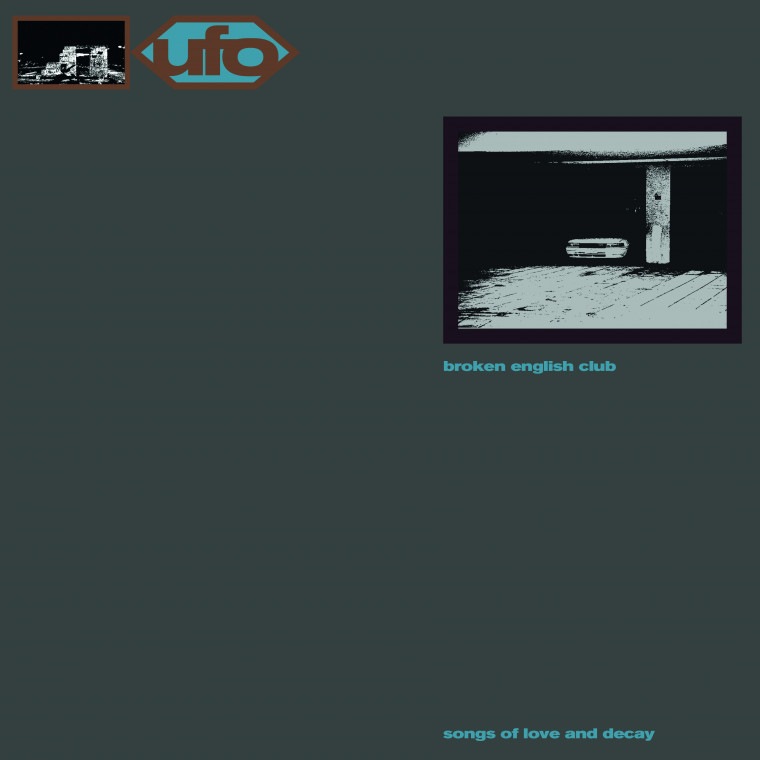Behind The Record: Broken English Club
Words by Finn Pietrass
With his seventh album as Broken English Club, Songs of Love and Decay, newly released on Dekmantel Records, we caught up with industrial voyager Oliver Ho to talk punk influences, nostalgia, and David Lynch.


When you were younger you listened to a lot of death metal and punk. When and how did electronic music come into the picture?
The first electronic music I heard was Tangerine Dream. One of the guys from Tangerine Dream did an album called “Aqua,” and it was full of these amazing synth arpeggios. That was maybe one of the first introductions I had to electronic music, and that was a very powerful record, very hypnotic. Soon after, I discovered Brian Eno. I was listening a lot to this stuff, the sort of ambient music genre. Then the first introduction to more heavier modern electronic music would have been Aphex Twin in 1992 when Selected Ambient Works 85-92 came out. I listened a lot to that album along with some of his earlier material that he did under the name Caustic Window and Polygon Window. Those albums were really formative for me. That influence slowly morphed into more clubby music. I discovered a lot of music going to raves in London, especially at the LOST parties with resident Steve Bicknell. A lot of people in the UK would travel for these parties, because of DJs like Jeff Mills and Robert Hood playing there. It’s where we first discovered Detroit techno and Chicago house and that kind of stuff.
The intersection of techno, industrial, and post-punk has been a recurring theme in your work, often alongside mystique and the occult. What keeps drawing you there?
Certainly, I think the occult is very central to my creative process because, for me, the occult is spirituality for artists. It's a way of navigating the internal space of one's mind and body, and relating it to the outside world. In that sense, it's a kind of spiritual system for creative artists, because it doesn't have the same dogmatic rules as organized religion. What's great about the occult is, it teaches the practitioner to use their imagination because it's all about what you think inside and how you project it outwards, and how the world can be a manifestation of what you have inside. It's a way of integrating your relationship with the universe and understanding that it's a two-way thing: you take stuff in, but you also put stuff out. This is really attractive for me in the creative process.
The occult is very heavy on ritual as well. So many of the things that artists do are so ritualistic, and you can see so much of it as a sort of magical process. It seems very natural for all these ideas to mix in with music, art, and performance. It’s about the idea of “as above, so below,” which is this idea of the macrocosm and the microcosm, and how these things can sort of be connected. Having that in my mind when I'm working on music, it imbues the music with a certain kind of intent and energy. It's hard to put into words, really, but with a lot of this stuff, I find that there are so many similarities between people who say they are artists and people who say they are druids or pagans – that we're actually doing very similar things, but we have different names for it.
When did you create Songs Of Love And Decay, and what inspired you in this process?
I wanted to make an album that was very brutal, but also quite melancholic. I've always loved things that have a contrast. There was also the idea of there being these extreme industrial sounds, at the same time as there are quite spacious ambient sounds. I was reading a book by the musician and artist Nick Cave called Hope, Faith and Carnage. The book is about him as an artist when he was at a place in his life where he dealt with mortality and the resulting creative process. Towards the end of finishing the album, some things that had happened in my life made me think about mortality and what we are here to do, but also how art can be so many different things. It can have happiness and sadness, brutalism and even softness. You want to embrace all of these things, and you want to understand that the flip side of happiness is sadness, or that the flip side of love is grief. All of these things were going on in my mind, especially because of the passing of Juan Mendez, Silent Servant. It was weird that I was reading this book that Nick Cave had written about people in his life, and then it was being mirrored in my own life as well.
"I wanted to make an album that was very brutal, but also quite melancholic. I've always loved things that have a contrast."
You say that this Album is dedicated to the late, great Juan Mendez. Can you elaborate a bit more on this?
It's essentially that the album is not about Juan in any way, but that music, I felt, was a really good way of acknowledging his influence and friendship. That's why it's dedicated to him. It seems to be the most fitting way of remembering him and acknowledging his place in the process of me working on this project and the influence that someone has. It really seems fitting, especially for this record, to acknowledge that. And it's a hymn to the memory of him, in some sort of way. There's no other way I think I could communicate how I feel about him other than music.

Alongside the classic and recognizable synth sounds, Songs of Love and Decay also features a lot of digital, almost glitchy textures. Are you deliberately exploring digital sounds more in your work now?
I think what I love about those really glitchy sounds is that they're very modern-sounding. Sometimes, with music that's very inspired and influenced by music from the past, it can sound too retro and too much like a copy of things that have happened in the past. I certainly reference stylistic ideas from the past, but what I'm interested in is taking things that sound very retro and then placing them side by side with very modern production ideas. For me, that's a really interesting space where you have something that could only ever be made now. I love really digital, glitchy sounds, which sound very chaotic, and having them alongside ideas that have a very retro sound. Certainly, with the album, there's a lot of that going on.
When talking about placing the nostalgic side by side with the modern, I assume you're familiar with the concept of Hauntology? Is that something that is relevant to your work?
Yeah, definitely! Because Hauntology is a form of postmodernism, isn't it? And it is also very much a sort of collage. I've always been a big fan of collage, visual collage, but also audio collage. It is a way of recontextualizing things, and that's what's really interesting about taking different ideas and mixing them up and seeing old ideas in new lights. I think that's what hauntology does, it takes things from the past and reframes them. It's a really interesting way of referencing the past without being too faithful to it, perhaps, trying to do something new while playing around with ideas that have been around for a long time.
Tracks like England Heretic, The Occult Body, and Pacific Island have a strong, soundtrack-like quality. How has film influenced your creative process in general, and did it play a role in shaping this album?
The works of John Carpenter were very influential for me, his use of synthesizers and the way he created suspense and very slow-building dread in his films, especially in Prince of Darkness, Assault on Precinct 13, and The Thing. I grew up with all those films, and I love them. When I'm making a lot of my music, I'm trying to create a landscape that has a character of its own and that is a space that you can pass through. Not only with the techno stuff that I do, but I have a few different projects, which all have that same feel to them. I see a lot of parallels between film, sound, and music. I also have to think of directors like David Lynch and the way in which he uses sound to create space and texture. Sometimes, sound can be very physical, and it's almost like putting sound in a piece of music is like putting furniture into a room. Some sounds are like objects, and then other sounds are more like the sky, or something. It’s like creating a scene when you make a piece of music.
What's the kind of movie that you think your album would be a good soundtrack to?
That's difficult! There's a film that was made a long time ago called Body Hammer. I think it's a Japanese film. It's black and white, and it's about a man who turns into a machine. It's amazing! Maybe also Eraserhead by David Lynch. I think what's great about Eraserhead is that it has this sense of space and slow dread. I think even more than Body Hammer, Eraserhead actually would be the one, because there's a bleak kind of soul there and I think that's often what I'm looking for in my music, a bleak kind of spirituality.
What would you like for people to take away from listening to Songs of Love and Decay?
I think the album is very much a celebration of techno, but it's also an album that's very personal. I would hope for someone to listen to the album and see things that are familiar to them, but also see things that are unfamiliar to them. I would like them to know that this is my take on techno. Techno is very much an art form that everyone has their own ideas about, and everyone thinks that they have a definition of what techno really is, but it isn't just one thing. This is my perspective, and my perspective has all these different things in it: listening to death metal in the late '80s, and being into punk, and loving David Lynch films, and being into photography, and loving the band Suicide. It's my take on something that people are familiar with. Seeing someone else do music is very interesting to me because you see that everyone has something to bring to the table because, in the end, everyone is a unique person.
What's next for Broken English Club?
The rest of this year is about taking the album out on the road and playing shows. I will possibly start thinking about another record at the end of the year or the beginning of next year, but for me at the moment, it's really about taking all this music out on the road. Every time I play, I think of new ways of doing things. You just change everything slightly every time you perform. It’s really interesting, that process of slowly learning. I also have the idea of possibly doing a hybrid DJ set, having elements of a live set but also having elements of the DJ set, and preparing something that flips between the two. That is something that might come in the middle of the year or towards the end of the year.

